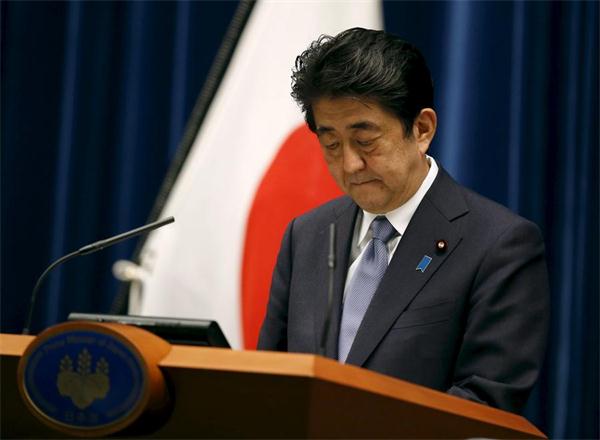Abe's avoidance of ceremonies shows he seeks no reconciliation
(China Daily) Updated: 2015-08-26 07:43
 |
|
Japan's Prime Minister Shinzo Abe attends a news conference to deliver a statement marking the 70th anniversary of World War Two's end, at his official residence in Tokyo August 14, 2015. [Photo/Agencies] |
Japanese Prime Minister Shinzo Abe will not attend China's commemorative events in early September to mark the 70th anniversary of the end of World War II, Japan's government spokesman Yoshihide Suga confirmed on Monday. Instead, Tokyo will "further develop the relationship between the two nations by creating opportunities for the leaders to have talks at international conferences and other events". Comments:
Objectively speaking, it would be inappropriate for Abe to attend Beijing's Sept 3 commemorations, given his recent improper moves that have displeased so many Chinese people. For one, Abe avoided offering his own apology in his Aug 14 statement marking the 70th anniversary of Japan's surrender. Just one day after his insincere speech, he sent a ritual offering to the notorious Yasukuni Shrine, which among others honors 14 Class-A war criminals, with some of his Cabinet members paying homage in person. This showed the Japanese leader did not want to visit China.
Xinhua News Agency, Aug 25
To some extent, the Abe administration did want to improve its approval rating by strengthening China-Japan ties. But the prime minister's final decision to skip the upcoming commemorative activities in Beijing, indicates that he is afraid of being censured by some forces at home if his stay in China becomes "awkward". Also, he is not ready to break with Japan's infamous past of the World War II period. However, Abe has missed a good opportunity to improve his domestic leadership and relieve the historical burden that Japan has been carrying for years.
Yang Bojiang, deputy director of the Chinese Academy of Social Sciences' Institute of Japan Studies, Aug 24
China's celebration of the 70th anniversary of the end of WWII is actually an integrity test for all the parties involved, as revealed by their attitudes toward the past and future. Such being said, whether Abe attends the September commemoration or not makes little difference to Beijing, which is expected to demonstrate its dedication to world peace at the events.
Gong Fangbin, a senior colonel and political education researcher at the PLA National Defense University, Aug 24
Judging by Abe's final decision not to take part in Beijing's September events, it seems that he and his administration see the 70th anniversary of the end of WWII as a grave geopolitical challenge, and not the right time for China-Japan reconciliation. At least, Tokyo believes that there are other things more important than possible reconciliation. Regretful as it is, Abe's absence is unlikely to worsen bilateral relations.
Global Times, Aug 25











